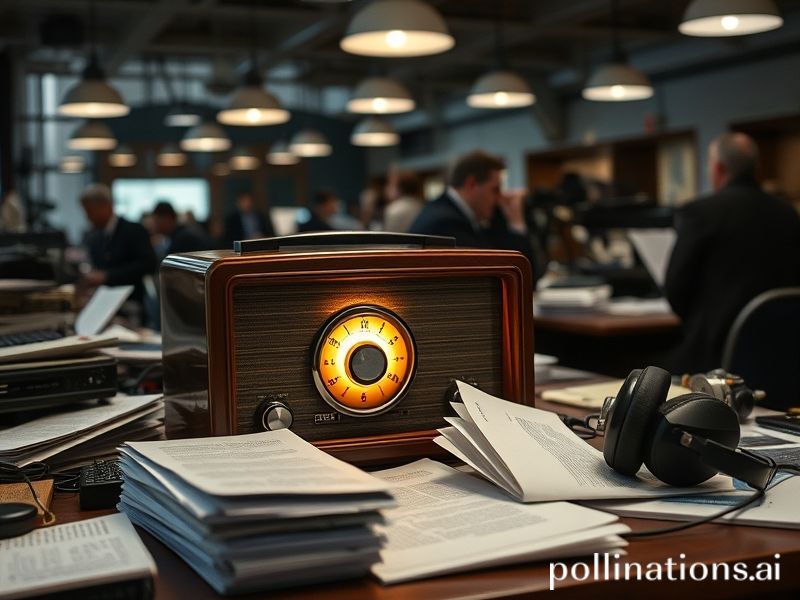Radio 4’s Global Tribe: How Britain’s Most British Institution Became an International Lifeline
**The Last Civilised Voice: How Radio 4 Became Britain’s Accidental Cultural Ambassador**
While the rest of the world spirals into TikTok-induced dementia, there’s something almost endearingly anachronistic about Britain’s Radio 4—a station that still believes words should contain more than two syllables and that “content” isn’t necessarily a synonym for “brain rot.”
Picture this: Somewhere in a concrete high-rise in Singapore, a former colony’s banker tunes in at 3 AM to catch The Archers, a radio soap about rural English folk who’ve been having the same agricultural disputes since 1951. In a Buenos Aires café, an insomniac philosophy professor listens to In Our Time, where academics discuss medieval theology with the earnest enthusiasm of people who’ve never had to worry about rent. Meanwhile, in a Damascus apartment with intermittent electricity, someone has downloaded the Friday night comedy podcast, desperate for British humor so dry it could dehydrate a camel.
Radio 4’s international audience isn’t just a quaint footnote—it’s a fascinating case study in soft power, nostalgia, and the human need for voices that don’t sound like they’re trying to sell you something. The BBC’s own figures suggest around 7 million global listeners weekly, though how many are actual humans versus lonely algorithms seeking companionship remains unclear.
What makes this phenomenon particularly delicious is the station’s complete indifference to its global appeal. While American media giants spend billions trying to crack international markets, Radio 4 remains stubbornly parochial, discussing village fêtes with the same gravitas afforded to nuclear policy. It’s like watching someone become an accidental cult leader while trying to organize a church bake sale.
The implications are wonderfully absurd. In an era where nations compete for cultural influence through Netflix deals and pop music, Britain’s most effective cultural export might be a station where people seriously debate the proper pronunciation of “scone.” Isis may have had Twitter, but the British Empire has Gardeners’ Question Time—a program where middle-aged people discuss compost with the intensity of hostage negotiators.
For the international listener, Radio 4 offers something increasingly rare: the illusion of civilization. While your own country might be experiencing political turmoil, economic collapse, or the everyday horror of modern existence, you can tune in to hear someone named Jocasta worrying about her runner beans. It’s audio Xanax for the globally anxious.
The darker joke here is that Radio 4’s appeal grows in direct proportion to global instability. Brexit? Listen to The Today Programme and feel sophisticated about democratic collapse. Climate change? Shipping Forecast’s soothing litany of weather patterns makes Armageddon sound manageable. Nuclear tensions? At least The Archers’ characters will still be arguing about organic farming after the fallout settles.
Perhaps most tellingly, Radio 4’s global audience reveals our collective hunger for institutions that haven’t completely surrendered to the attention economy. In a world where every interaction is data-mined for advertising potential, there’s something almost revolutionary about a radio station that still believes in complete sentences.
The station’s international significance isn’t in its content—it’s in its existence. Like those Japanese soldiers who kept fighting decades after WWII ended, Radio 4 soldiers on as a reminder that civilization, however doomed, once existed. For millions of international listeners, it’s the audio equivalent of those Victorian explorers who carried Shakespeare into the jungle: proof that somewhere, somehow, people still believe that being educated is more important than being influential.
As the world burns, Radio 4 continues discussing the proper way to make tea. There’s something almost heroic about that level of denial, or perhaps just typically British. Either way, millions worldwide are listening, grateful for voices that sound like they come from a time when we still believed the future might be better than the past.







